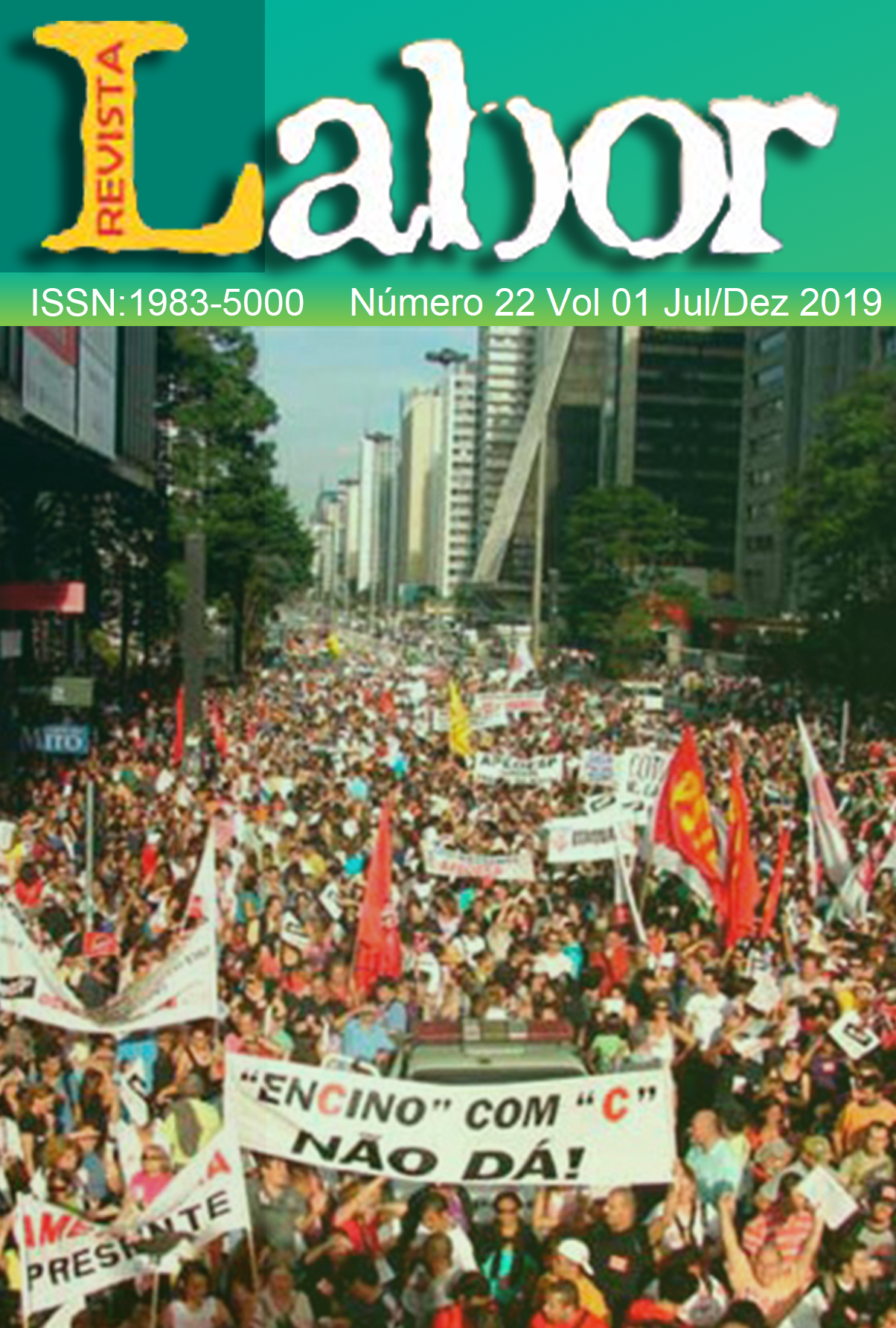The Education as an Instrument for Transforming Reality:
application in the central hinterland of Ceará
DOI:
https://doi.org/10.29148/labor.v1i22.43891Keywords:
social transformation;, education;, society;, learning process;, appreciation of experience.Abstract
The learning process is inherent to living beings, especially human beings, it is continuous from the beginning of existence to its end and formal education is an important part of this process, but it is not limited to it. The article seeks to highlight the transformative action of education in the reality of people, based on a broad debate about education and its transforming power, as well as the use of it in the context of a project applied in municipalities in the Central Hinterland of Ceará. Project that seeks the commitment to awaken in its graduates a reflection about a liberating education. The project is in line with the liberating learning methodology by seeking to train individuals aware of their realities and make them part of the learning process for change. However, social transformation, through education, does not happen effectively if all methodological forms, whether practical or human and critical formation, are not in line with pedagogical practice. As a conclusion, there was a significant impact on the reality of students and of municipalities reached by the program, showing that a liberating pedagogy turns young people into protagonists of their social reality.
References
SOUSA, Antonia (orgs) Educação profissional: análise contextualizada. Ed. UFC, Fortaleza, 2014.
BRASIL. Constituição. Constituição da República Federativa do Brasil. Brasília, DF, Senado, 1998. Disponível In: https://www2.senado.leg.br/bdsf/bitstream/handle/id/508200/CF88_EC85.pdf, acessado em: 10/08/2019.
BRASIL. Lei de Diretrizes e bases da Educação Nacional. LDBEN, nº 9.394. Brasília: Câmara Federal, 1996.
EMEDIATO, Carlos Alberto. Educação e Transformação Social. Análise Social. 1978 Disponível em: <http://analisesocial.ics.ul.pt/documentos/1223988831F4kNP5ba1Hw59NP3.pdf>. Acesso em: 25/10/2019.
FREIRE, Paulo. Educação e Mudança. 12ª Edição. Paz e Terra. Rio de Janeiro, 1979.
FREIRE, Paulo. Pedagogia da autonomia: Saberes necessários à prática educativa. São Paulo: Paz e Terra. 1996.
FREIRE, Paulo. Pedagogia do Oprimido. 49º ed. Rio de Janeiro: Paz e Terra, 2005.
FRIGOTTO, Gaudêncio. Educação e a crise do capitalismo real. 3. Ed. São Paulo: Cortez, 1999.
GONSALVES, Elisa Pereira. Educação Biocêntrica: o presente de Rolando Toro para o pensamento pedagógico. 2º ed. Editora Universitária-UFPB, 2009.
LÜCK, H. Dimensões da gestão escolar e suas competências. Curitiba: Editora Positivo, 2009.
MACHADO, Nílson José. Educação: projeto e valores. São Paulo: escrituras Editoras, 2000. (Coleção Ensaios Transversais).
SCHAFRANSKI, M. D.. A educação e as transformações da sociedade. Publicatio UEPG. Ciências Humanas, Ciências Sociais Aplicadas, Lingüística, Letras e Artes, v. 10, p. 101-112, 2005.
STRECK, Danilo R. Educação e transformação social hoje: alguns desafios políticos-pedagógicos. Revista lusófona de educação, v. 13, p. 77-84, 2009.
Downloads
Published
How to Cite
Issue
Section
License
Autores que publicam nesta revista concordam com os seguintes termos:
1. Autores mantém os direitos autorais e concedem à revista o direito de primeira publicação, com o trabalho simultaneamente licenciado sob a Licença Creative Commons Attribution que permite o compartilhamento do trabalho com reconhecimento da autoria e publicação inicial nesta revista.
2. Autores têm autorização para assumir contratos adicionais separadamente, para distribuição não-exclusiva da versão do trabalho publicada nesta revista (ex.: publicar em repositório institucional ou como capítulo de livro), com reconhecimento de autoria e publicação inicial nesta revista.
3. Autores têm permissão e são estimulados a publicar e distribuir seu trabalho online (ex.: em repositórios institucionais ou na sua página pessoal) durante o processo editorial informando que o artigo está em processo de publicação, já que isso pode aumentar o impacto e a citação do trabalho publicado (Veja O Efeito do Acesso Livre).


